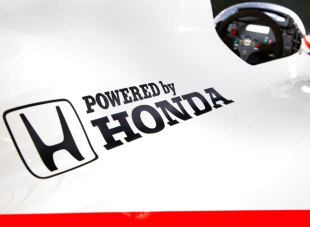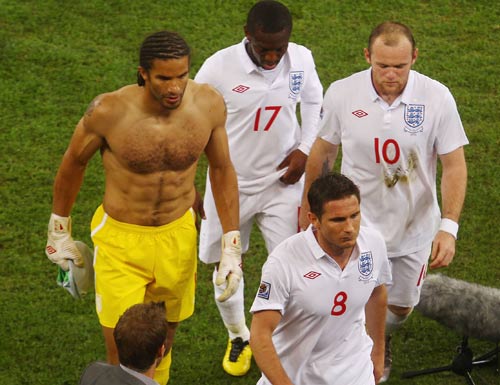
- Teams:
- McLaren
It was the news we'd all been waiting for. For well over a year McLaren had been playing down rumours that it would join forces with Honda under the new engine regulations, but the deal made too much sense for it not to happen.
The Japanese manufacturer has a long and illustrious history in Formula One and the spirit of Soichiro Honda, who once said "If Honda does not race there is no Honda", still lives strong. But it is not a company living in the past and the new small-capacity turbo regulations match perfectly with the brand's aspirations for its future. Its performance-orientated road cars, once known for high-revving, naturally aspirated engines, will have forced induction in the future, and the focus on energy recovery from 2014 onwards marries perfectly with its hybrid technology.
For McLaren the deal has been on the cards ever since Mercedes announced its return as a factory team at the end of 2009. Without a works engine deal, McLaren faced the same fate as Williams in the mid-2000s when it lost BMW power and had to start accepting second best. Under the current frozen engine regulations it was not a major issue to be powered by Mercedes, but from 2014 onwards having an engine company working directly with the team will be a huge advantage.
To continue to compete with Mercedes, Ferrari and Red Bull (the latter has a "premium" supply deal with Renault), McLaren needed its own engine supplier, and in Honda it has one of the best in the business. It's true the last Honda F1 engine was unloved, but the new regulations offer a blank sheet of paper and far more flexibility for the Japanese company to showcase its engineering prowess. The deal also rekindles fond memories for almost every F1 fan of the Marlboro McLaren Hondas of the late 1980s and early 1990s. The last time Honda supplied McLaren with a turbocharged V6 engine, it won all but one race during the 1988 season. The pedigree is there.
The question now is whether Honda can hit the ground running. Work on the new engine will be well underway and fully-integrated with McLaren's chassis project, but it will still be a season behind when it hits the track in 2015. One advantage to that is that McLaren will have full access to a Mercedes powerplant in 2014, giving it inside knowledge of what the opposition is up to, but whether that will rub off on Honda's plans remains to be seen.
We don't yet know if Honda will strike deals with any other teams for its return. Supplying a second team will be hugely advantageous for testing and data, but finding one with a deal set to expire at the end of 2014 could be tough. The likes of Force India, which has a technical relationship with McLaren and would be an ideal candidate, is already signed up to Mercedes beyond the end of next year. Sauber is historically linked with Ferrari but has yet to confirm a deal for next year and Williams is tied up with Renault. Marussia is without an engine supply next year and has links to McLaren, but is unlikely to be a midfield runner any time soon. What's more striking a one year deal with another manufacturer will not be easy.
For Formula One, however, the deal is very good news. Relying on three engine manufacturers from 2014 would have been precarious and run the risk of leaving the sport with just two suppliers should one of them decide to pull out. What's more Honda is not just another engine manufacturer, but one of the biggest automotive brands in the world. The news, therefore, is a victory for the new engine regulations, which set out promising to rejuvenate the sport but have been knocked from all sides for burdening it with extra cost.
It should also assure that F1 remains big in Japan, which has been a big market over the last two decades and a favourite venue within the paddock. In Jenson Button, Honda also has one of the most popular drivers in its home market, helped by the presence of his half-Japanese girlfriend Jessica Michibata and his time at Honda in the 2000s.
Roll on 2015.
Laurence Edmondson is deputy editor of ESPNF1
© ESPN Sports Media Ltd.
 Laurence Edmondson is deputy editor of ESPNF1 Laurence Edmondson grew up on a Sunday afternoon diet of Ayrton Senna and Nigel Mansell and first stepped in the paddock as a Bridgestone competition finalist in 2005. He worked for ITV-F1 after graduating from university and has been ESPNF1's deputy editor since 2010
Laurence Edmondson is deputy editor of ESPNF1 Laurence Edmondson grew up on a Sunday afternoon diet of Ayrton Senna and Nigel Mansell and first stepped in the paddock as a Bridgestone competition finalist in 2005. He worked for ITV-F1 after graduating from university and has been ESPNF1's deputy editor since 2010

